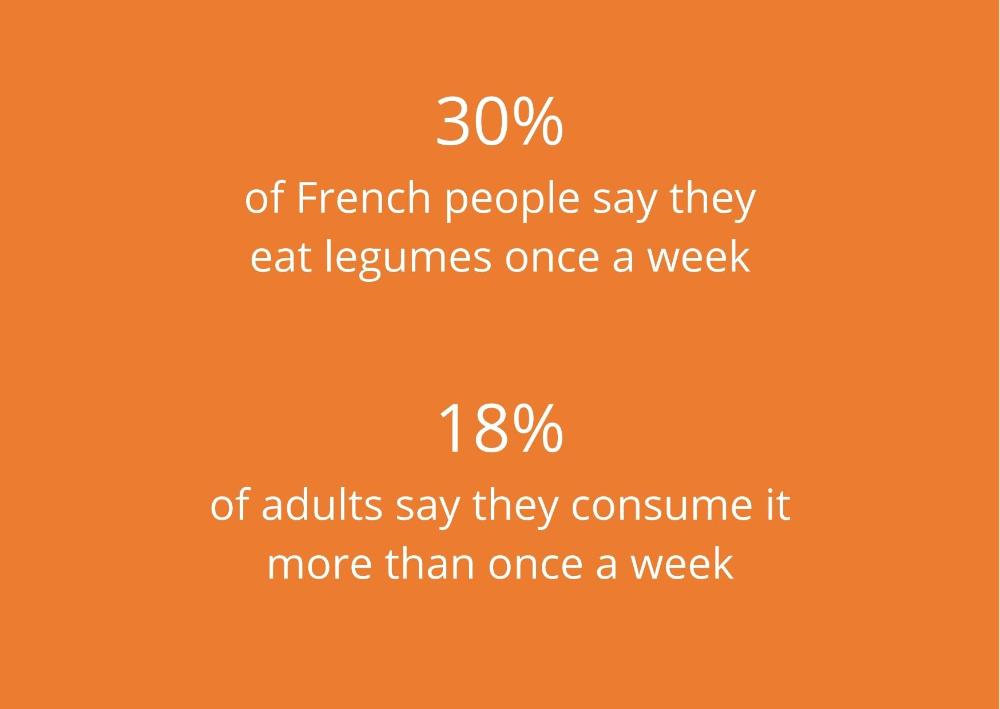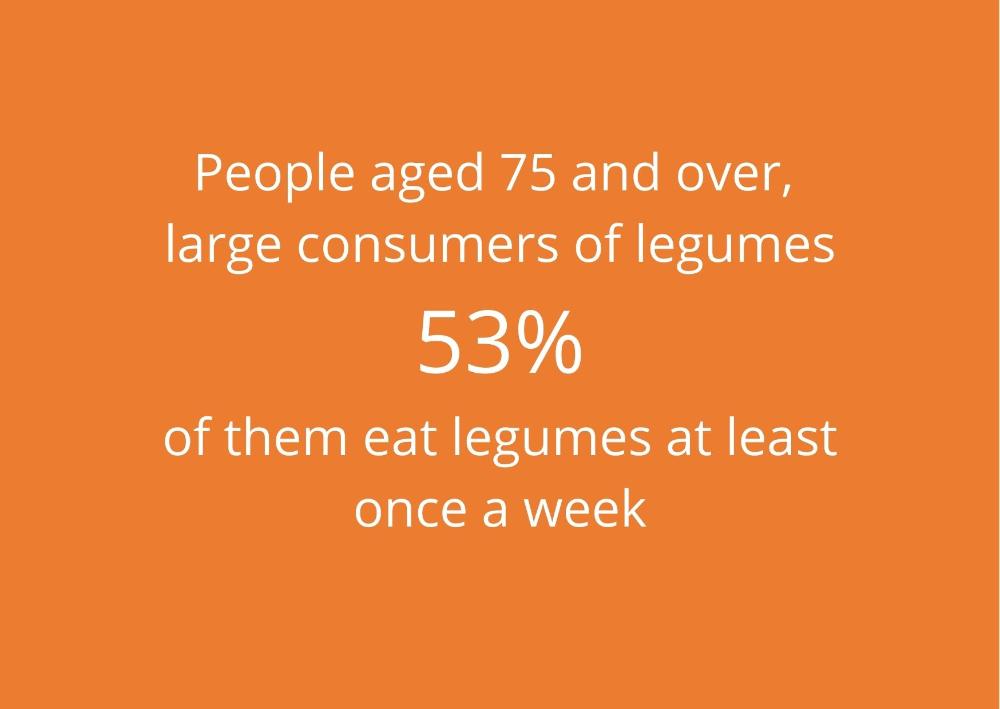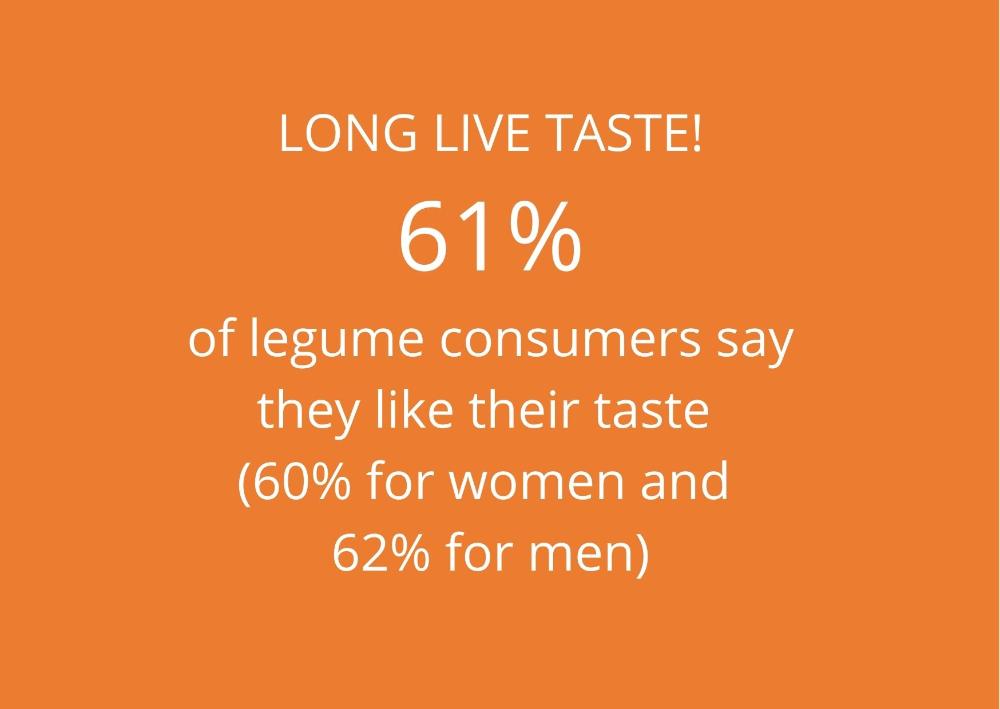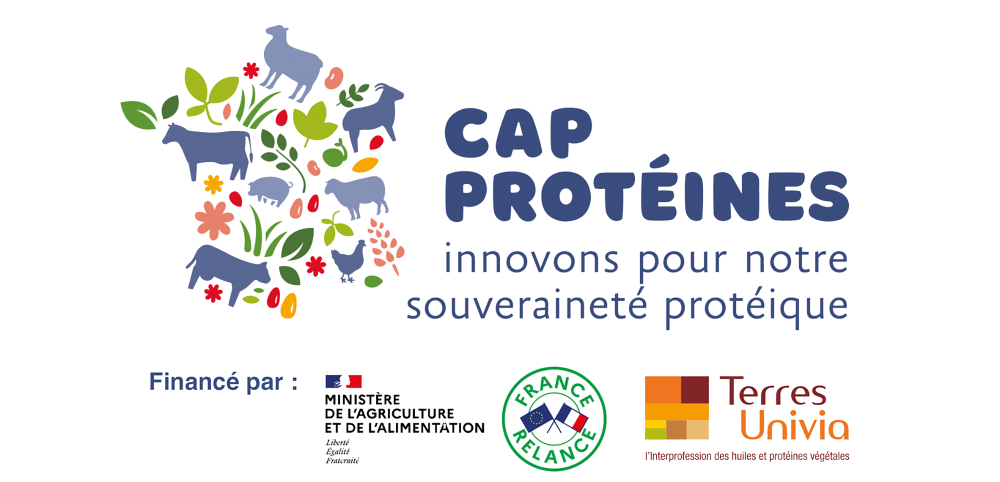Nearly one in two French people eat legumes at least once a week
Nearly one in two French people eat legumes at least once a week

Paris, October 11, 2021 - Terres Univia, the French vegetable oil and protein trade association, is unveiling the results of a study on the place of legumes in the dietary behavior and attitudes of the French. This study*, carried out as part of the CRÉDOC's major annual survey on eating habits in France between April and May 2021, was designed as part of Cap Protéines, the research, development, innovation and transfer program of the Protein Plan launched by the public authorities as part of France Relance, and more specifically as part of the "Sharing information from producer to consumer" project.
The results of the study speak for themselves: with nearly one French person in two (48%) consuming legumes at least once a week, chickpeas, lentils, field beans, peas, dried beans, soybeans and lupins are gaining a place on consumers' plates!
"One of the challenges of Cap Protéines is to be able to decipher consumers' expectations of legumes. A better understanding of these expectations, in order to better produce and innovate, is essential to work towards our food sovereignty, and to increase the surface area of pulses by 40% by 2024," emphasizes Antoine Henrion, farmer and President of Terres Univia.
48% of French people eat legumes at least once a week.

Who eats legumes? A wide range of profiles!
What are legumes?
Legumes are plants whose seeds are contained in pods (or siliques). Most of them are rich in starch and proteins. The term "legumes" includes pulses (chickpeas, lentils, beans) but also beans, lupins, peas and soybeans.

People aged 75 and over are the biggest consumers of legumes, mainly because they are used to cooking them. However, contrary to popular belief, the other categories of the population have a weekly consumption of legumes that is quite similar to that of their elders: 50% of 35-44 year olds, 49% of 65-74 year olds and 48% of 45-54 year olds consume them at least once a week. Similarly, 48% of 15-24 year olds and 45% of 25-34 year olds also claim to eat them at least once a week!
Very strong cultural effect
The most highly educated are a category of the population that consumes legumes strongly and regularly, as 54% of those surveyed with more than two years of higher education and 54% of adults with two years of higher education eat them at least once a week. Only 39% of French people without degrees eat legumes at least once a week. The cultural impact seems to be strong in the knowledge and consumption of legumes, which increases with the level of education. The influence of the consumption practices of the most highly educated populations on the population as a whole could eventually promote the overall consumption of legumes.
The more organic products are consumed, the more legumes are eaten
Among French people who eat organic products every week, 63% of them eat legumes at least once a week: 28% cook them more than once a week and 35% once a week. Consumption of organic products and legumes thus seem to be two consumption criteria regularly associated.
What are the reasons for eating or not eating legumes?

The first three reasons for consuming legumes cited by the respondents are: their taste (61%), their high protein content (46%) and their ease of preparation (39%). The taste and nutritional benefits of these small seeds seem to be recognized by consumers.
Recognition of the protein content of legumes is higher among women (49%) than among men (44%).
Contrary to other consumer products, the price of legumes is not the first identified consumption criterion, a guarantee of the good quality-price ratio of these small seeds (only 24% of respondents cite it among the first two consumption criteria). Similarly, the French do not seem to be aware of the environmental benefits of legumes (fixing atmospheric nitrogen, improving soil fertility, etc.), as only 10% of them cite environmental benefits as a consumption criterion, even though the environment is one of the French people's concerns, especially among the younger generation.
Generational paradox: the reasons that drive some people to consume legumes are also those that drive other French people not to consume them
French people who eat little or no legumes cite preparation time (36%, with a high percentage of managers in this category (44%)) or not knowing how to cook them (34%), especially among 25-34 year olds (47%). Taste is also mentioned by 29% of respondents, and in particular by 40% of 18-24 year olds. Learning how to taste and prepare legumes in everyday dishes by young people seems to be a priority to promote the consumption of legumes and to enhance the value of these vegetable protein sources.
"If the advantages of pulses tend to be known by consumers, our sector must continue to work on education that takes into account the segmentation of consumption observed today for pulses: to make young people aware of the undeniable benefits of pulses, both in terms of taste and nutrition and their environmental advantages! These important communication issues to be addressed in the coming years can be supported by the many references acquired thanks to Cap Protéines," emphasizes Laurent Rosso, Director of Terres Univia.
*Study methodology:
This study was conducted from April 15 to May 6, 2021 among 4,100 individuals over 15 years of age representative of the French population and among 3,020 purchasing managers. The CRÉDOC has been conducting this survey on eating habits in France since 1988.
